Networks, Collaborations, Resistance in/between Portugal and Brazil, 1962-1982
Curator: Rui Torres
Artworks from the moraes-barbosa collection and Fernando Aguiar archive
Lisboa Municipal Galleries
June 6th to September 5th 2021
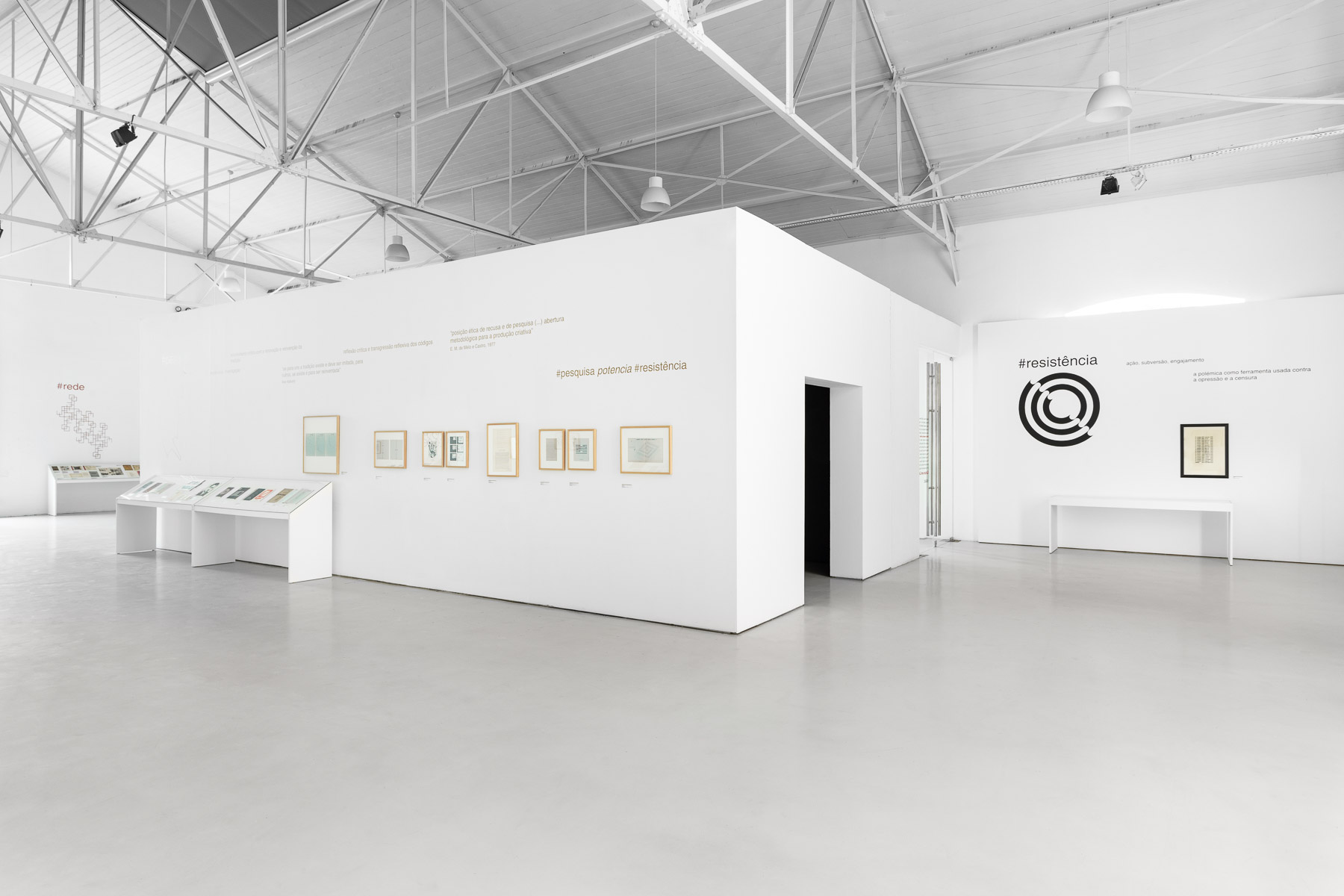
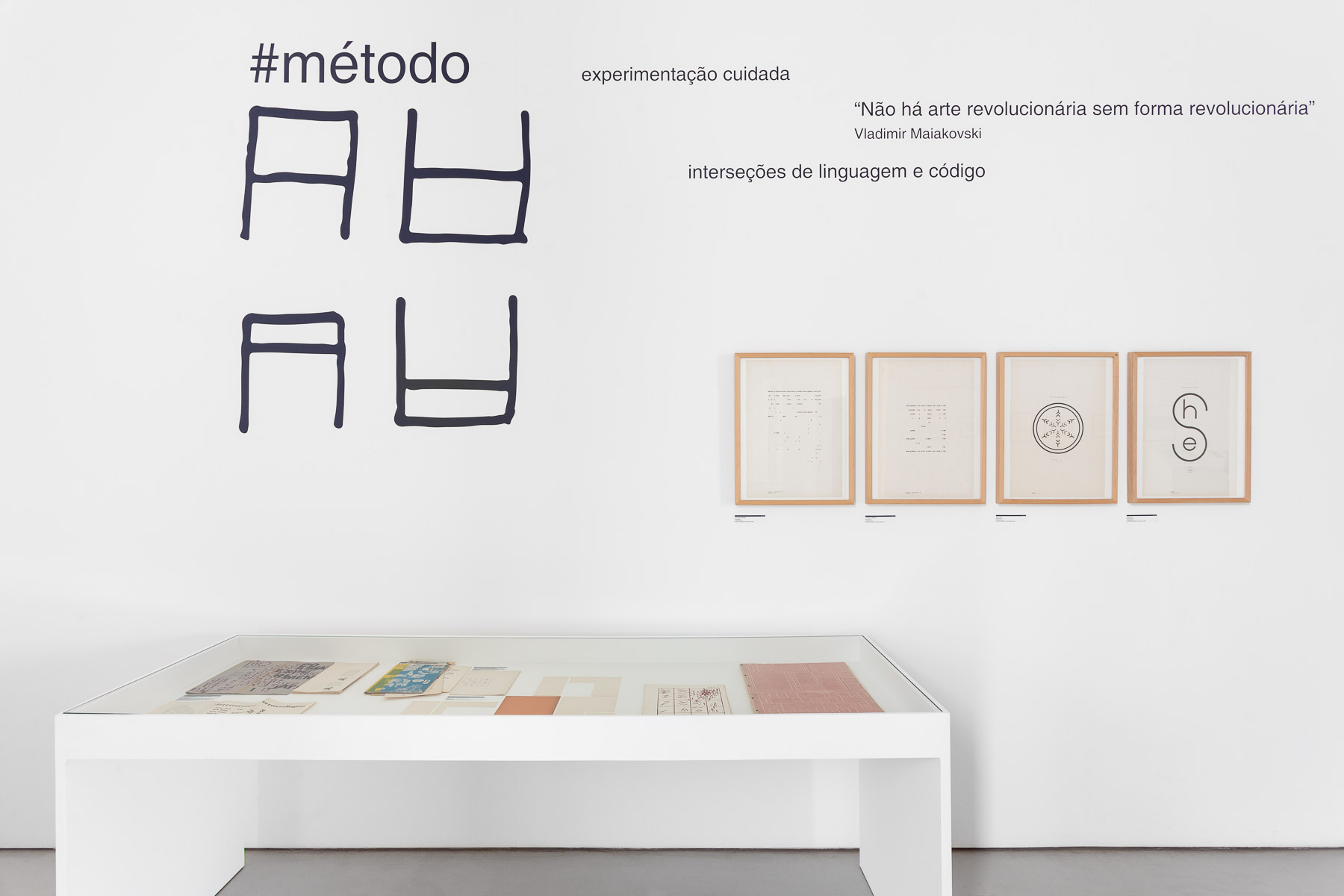
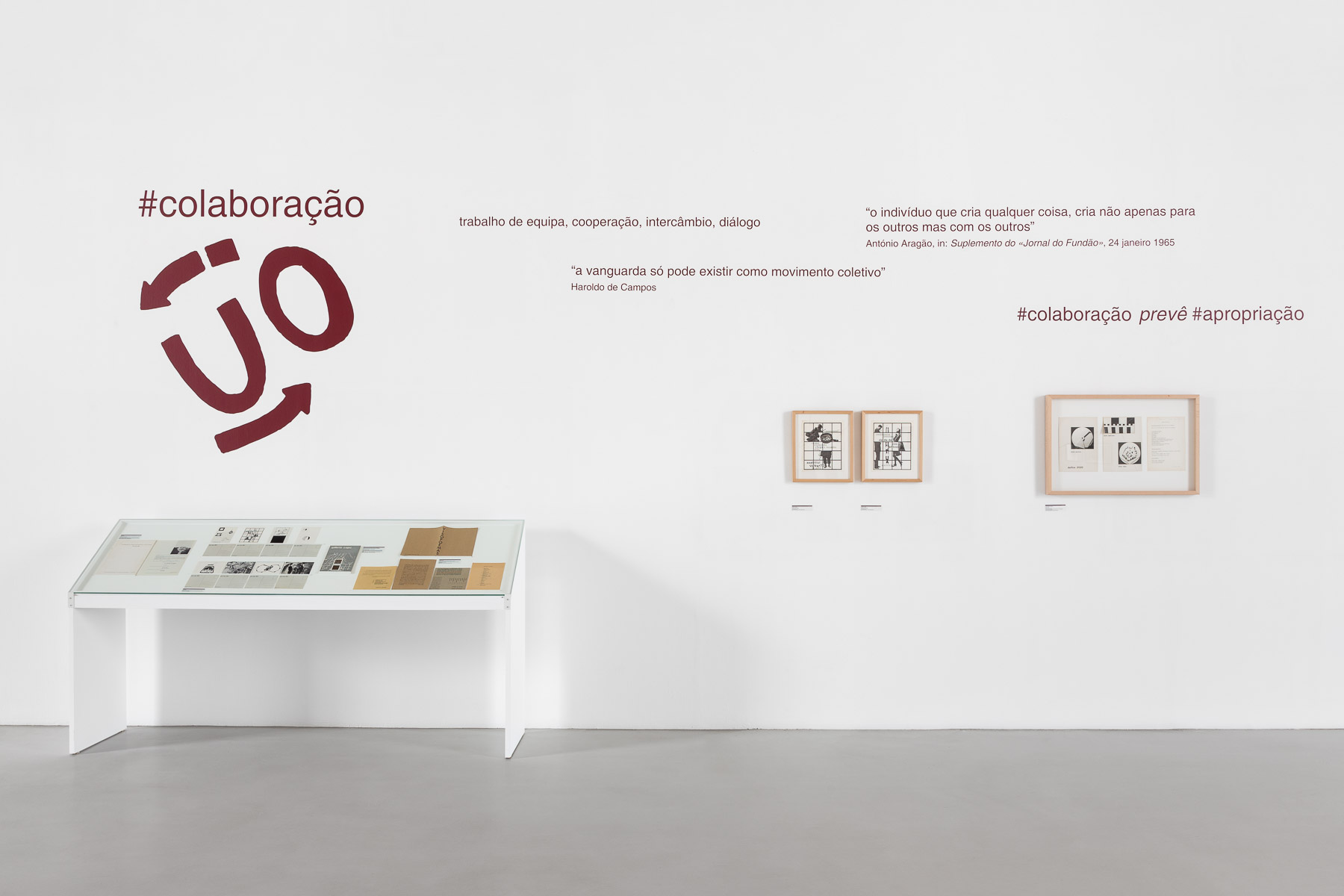
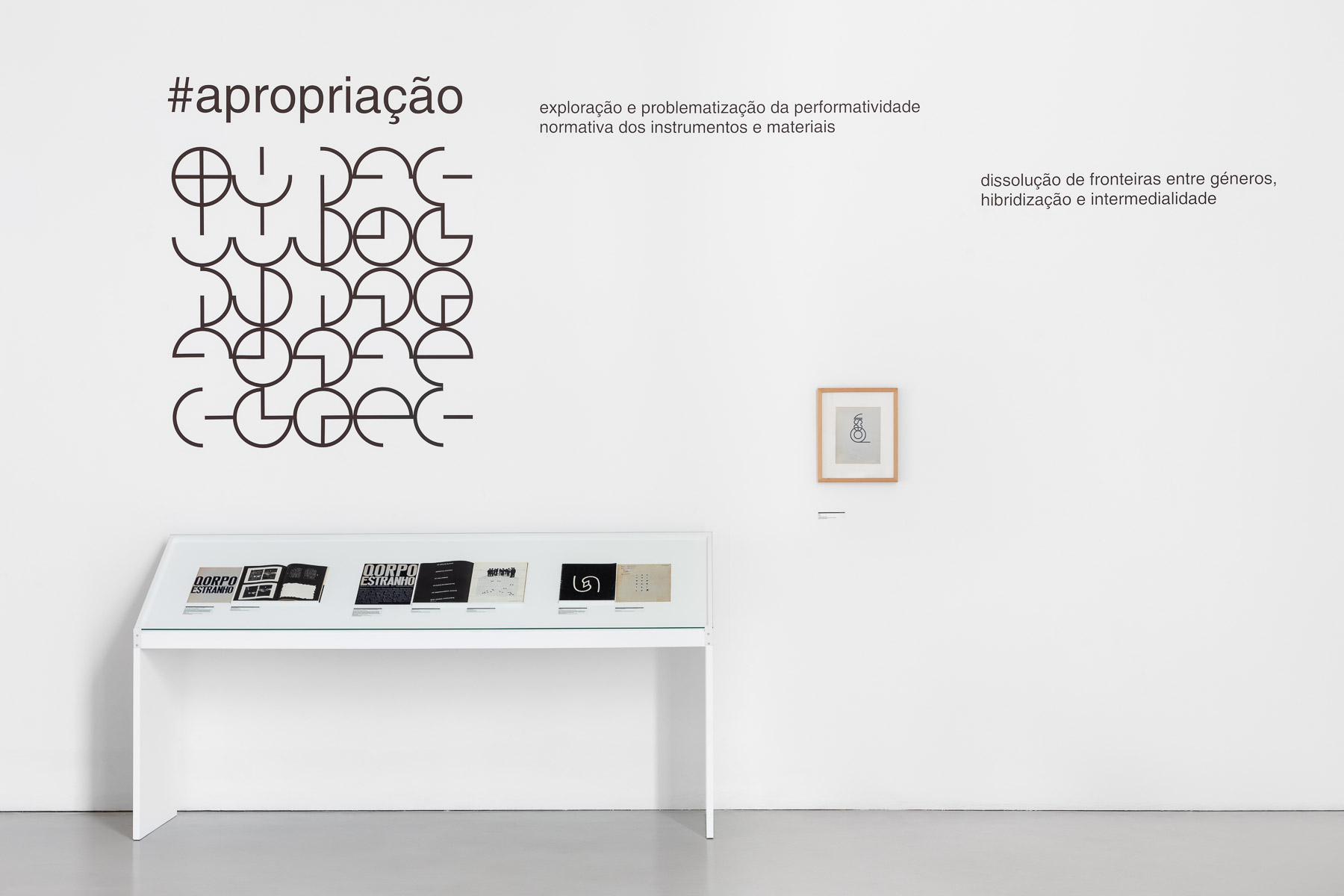
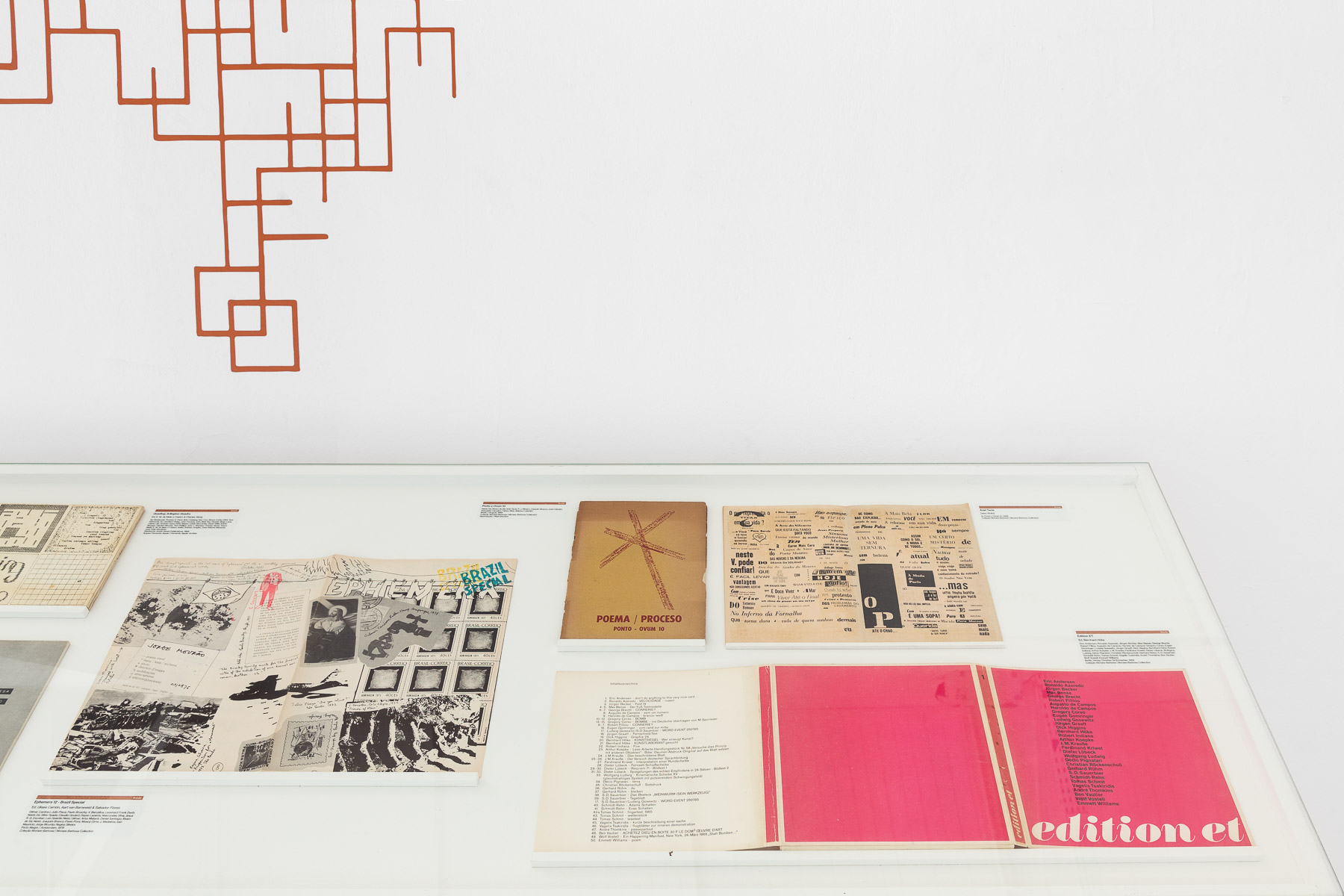
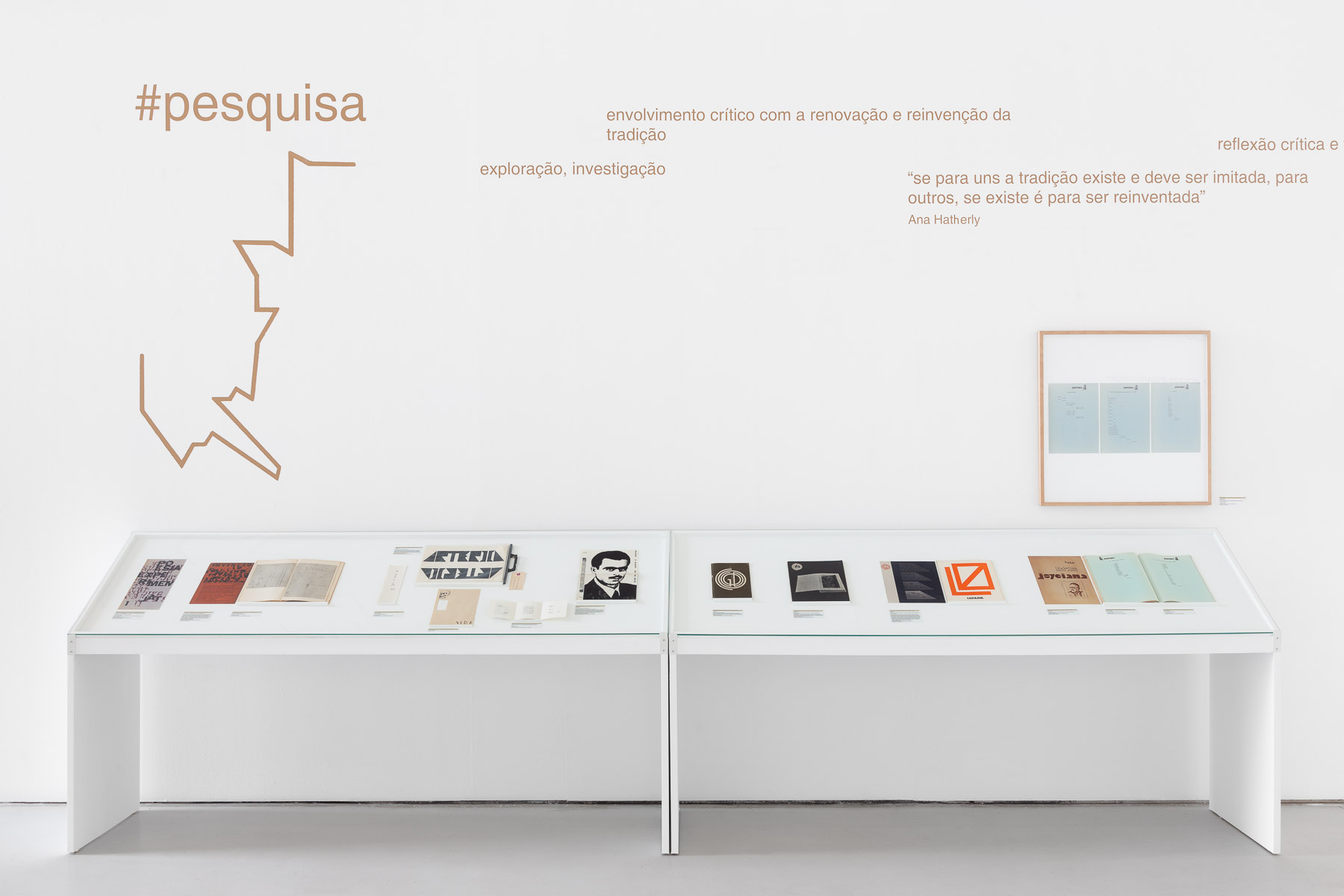
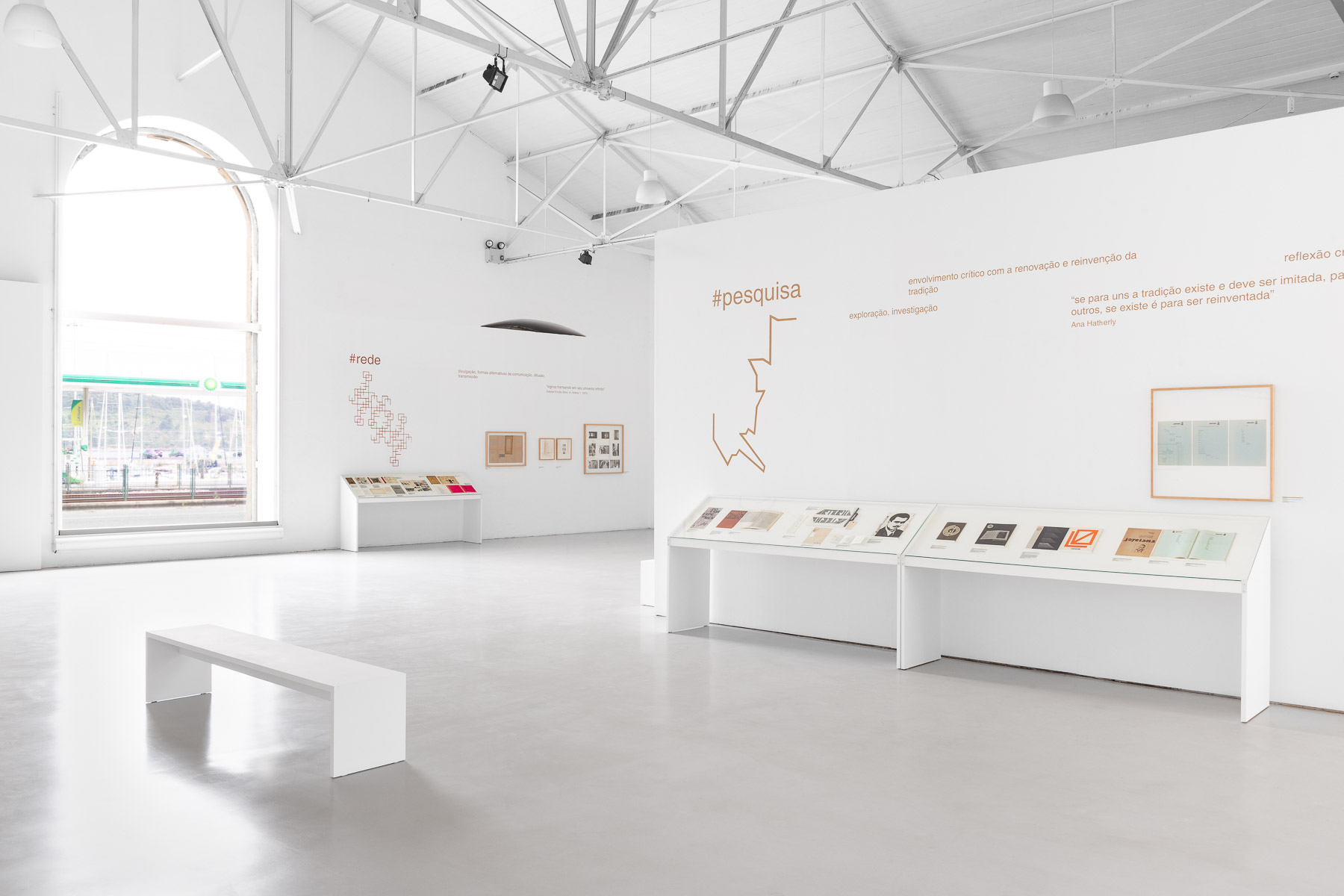
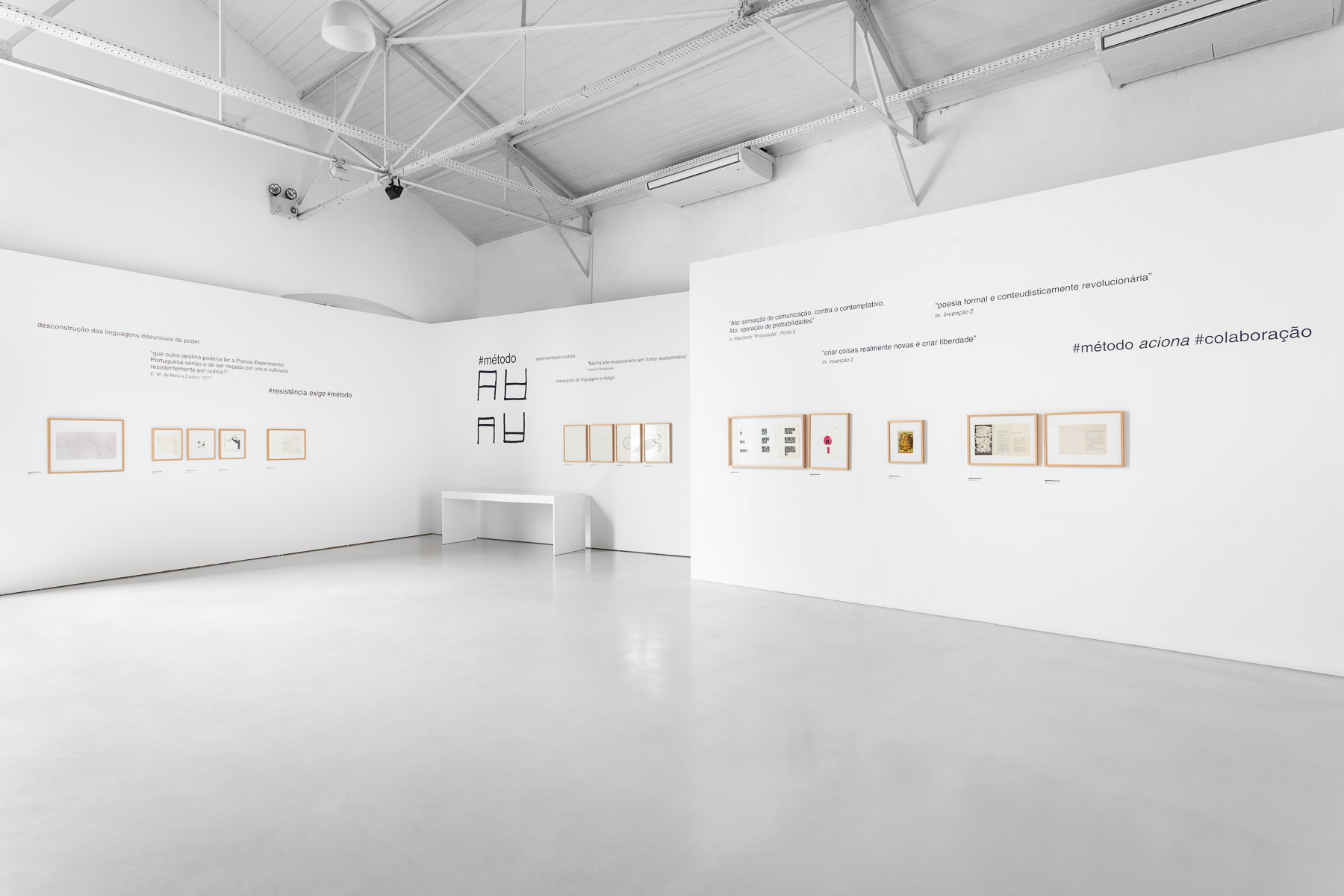
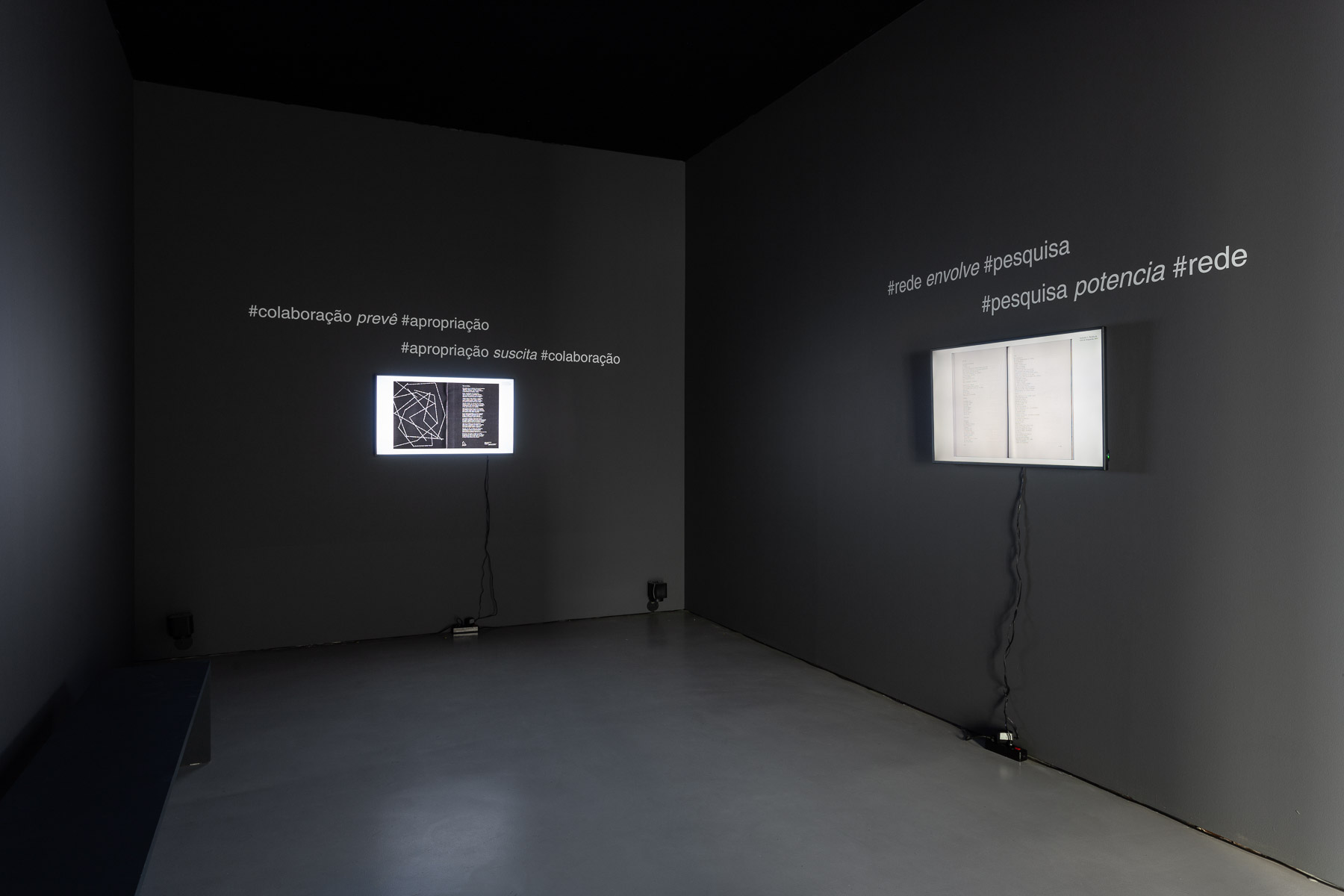
The Municipal Galleries are pleased to present Networks, Collaboration and Resistance in/between Portugal and Brazil, 1962–1982, an exhibition with collective publications from the Fernando Aguiar Archive and the Moraes-Barbosa Collection.
The Fernando Aguiar Archive (Lisbon, Portugal) contains around 50,000 items related to experimental and visual poetry, performance, mail art, artist’s books, Fluxus and conceptual art, with emphasis on the Portuguese experimental poetry component.
The Moraes-Barbosa Collection (São Paulo, Brazil) is a repository of conceptual art and video art as well as an archive of 15,000 objects of dance and performance, experimental music, visual poetry, and art magazines.
From these two private archives, 34 collective publications were selected (books, magazines, catalogs), disseminated in informal networks, of which 75 works by 41 poets and artists were highlighted: Abílio-José Santos, Álvaro de Sá, Ana Hatherly, Ânima, António Aragão, António Dantas, António de Campos Rosado, António Nelos, Ariel Tacla, Augusto de Campos, Décio Pignatari, Edgard Braga, E. M. de Melo e Castro, Erthos Albino de Souza, Haroldo de Campos, Iberê, José-Alberto Marques, José Lino Grünewald, Julio Plaza, Leonhard Frank Duch, Liberto Cruz, Manuel de Seabra, Neide Sá, Nei Leandro de Castro, Nenn, Omar Khouri, Paulo Miranda, Pedro Osmar, Pedro Tavares de Lima, Pedro Xisto, Peo, Quirinus Kuhlmann, Regina Silveira, Régis Bonvicino, Ronaldo Azeredo, Salette Tavares, Silvestre Pestana, Sílvio Antonio Spada, Ubirajara Ribeiro, Willy Corrêa de Oliveira and Wlademir Dias-Pino.
Sharing the Portuguese language but acting as a network and circulating internationally, these works allow us to understand a variety of aesthetic coordinates and practices located at the confluence of network, collaboration and resistance. On the other hand, the alternative formats and channels used seem to foreshadow the way in which different artistic codes and processes blend and convulse in today’s networked society.
By identifying analogous forms of expression that constitute common acts of resistance in Portugal and Brazil, albeit at different times and in dialogue with different communities, it is possible to observe a vital social intervention, promoting a poetic and political action, triggered by critical operations of reinvention of reading and writing, participation and production, freedom and resistance.
The selected publications include local groups or movements (Experimental Poetry, Noigandres, Invenção, Poem/process, Código, Mail art, etc.). However, instead of addressing such movements as synchronous events charged with local identity, we examine how their cooperative activity triggered radical forms of innovation that outlived their very movements.
To expose these exchanges and dialogues, a set of hashtags that characterize the material diversity on display is proposed:
#resistance mobilizes works marked by action, subversion and engagement;
#method triggers experimentation, intersection and structure;
#collaboration signals acts of cooperation, exchange and dialogue;
#appropriation involves intermediality, translation and adaptation;
#network enhances alternative forms of communication, dissemination and circulation;
#research proposes reinterpretations of tradition through research and invention.
The exhibition was on view at the John Young Museum of Art, University of Hawai’i at Mānoa between October 26, 2020 – January 28, 2021, where it was organised by Maika Pollack and Rui Torres, based on an essay by Rui Torres.
Started in 1999, the Moraes-Barbosa Collection (São Paulo, Brazil) is a repository of conceptual art and video art as well as an archive of 15,000 objects of dance and performance, experimental music, visual poetry, and art magazines. Currently, there are several projects in progress with artists, researchers and art critics, which explore the archive, as well as a project with the University of São Paulo dedicated to the study of art and artificial intelligence.
The Fernando Aguiar Archive (Lisbon, Portugal) contains around 50,000 items related to experimental and visual poetry, performance, Mail-art, artist’s books, Fluxus and conceptual art, since the 1960s, with emphasis on the component of Portuguese experimental poetry. The documentary collection consists of books, catalogues, magazines, artist’s magazines, posters, leaflets, photographs, slides and negatives, contact proofs, videos, digital poetry, cassettes, discs and CDs of sound poetry and postcards, among others.
ARTISTS: Abílio-José Santos, Álvaro de Sá, Ana Hatherly, Ânima, António Aragão, António Dantas, António de Campos Rosado, António Nelos, Ariel Tacla, Augusto de Campos, Décio Pignatari, Edgard Braga, E. M. de Melo e Castro, Erthos Albino de Souza, Haroldo de Campos, Iberê, José-Alberto Marques, José Lino Grünewald, Julio Plaza, Leonhard Frank Duch, Liberto Cruz, Manuel de Seabra, Neide Sá, Nei Leandro de Castro, Nenn, Omar Khouri, Paulo Miranda, Pedro Osmar, Pedro Tavares de Lima, Pedro Xisto, Peo, Quirinus Kuhlmann, Regina Silveira, Régis Bonvicino, Ronaldo Azeredo, Salette Tavares, Silvestre Pestana, Sílvio Antonio Spada, Ubirajara Ribeiro, Willy Corrêa de Oliveira e Wlademir Dias-Pino.